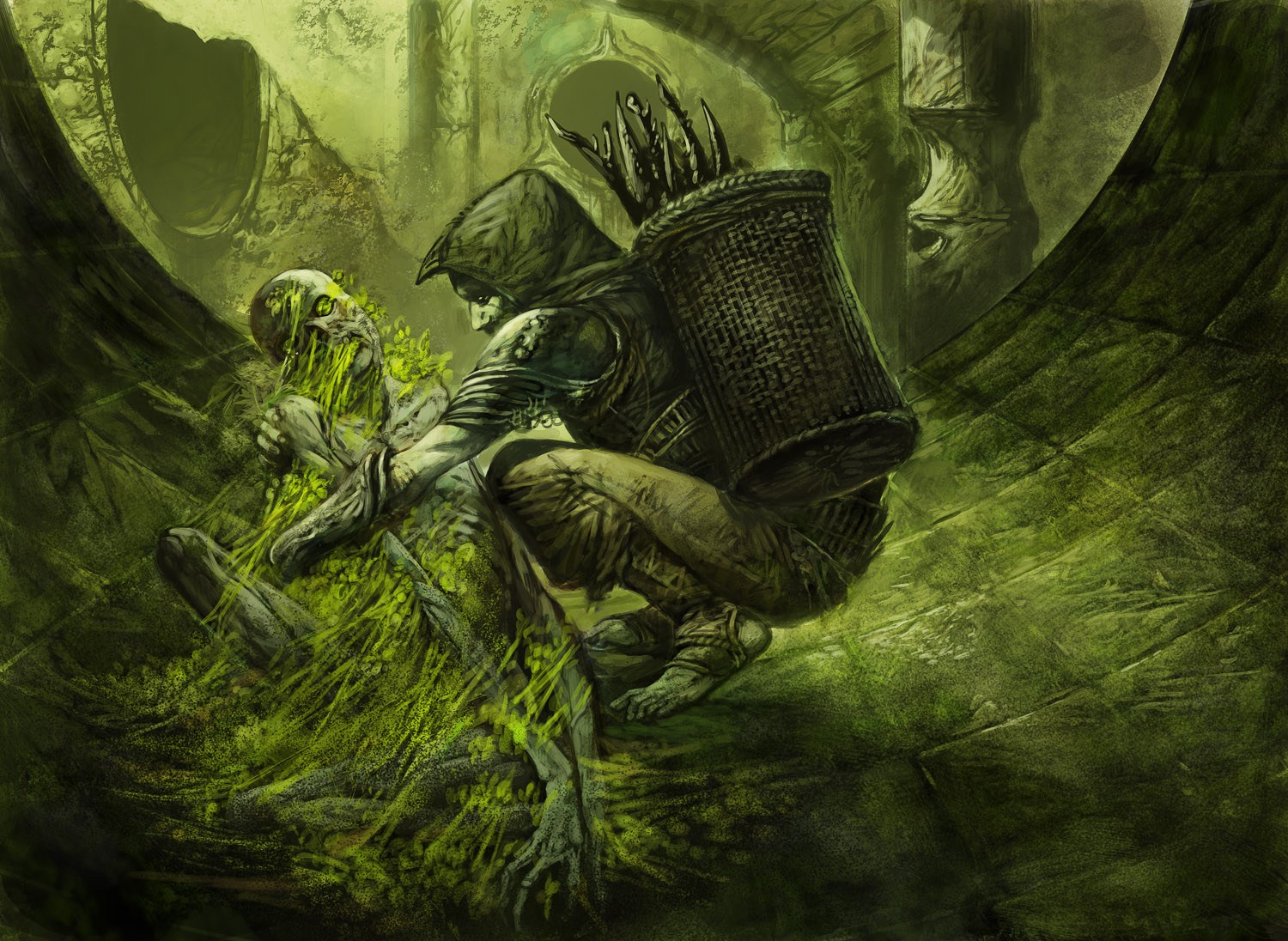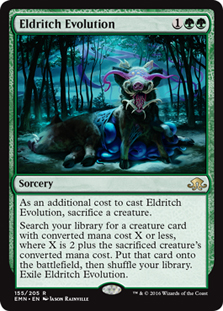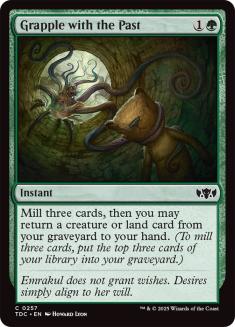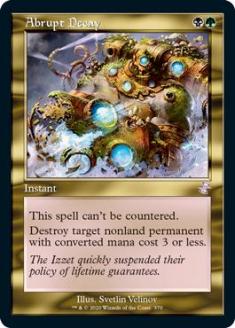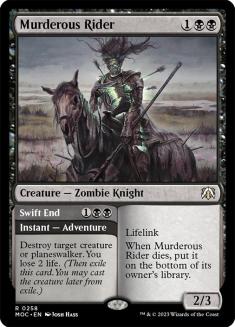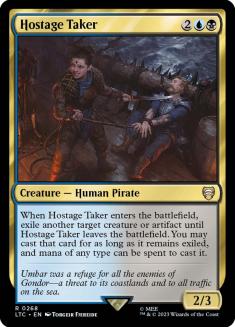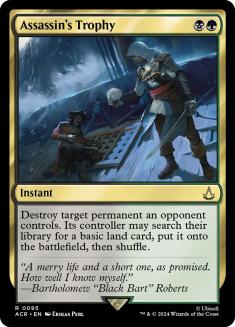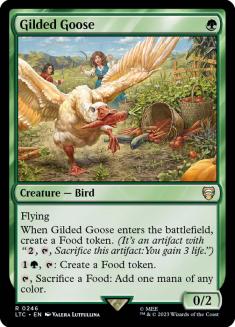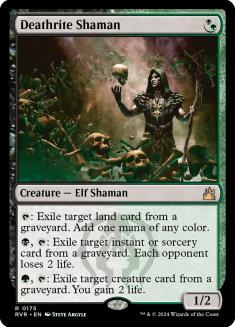Yesterday I lost a match on Magic Online against WhiteFaces in a League in which they would go on to earn a trophy. I was playing Mono-White Devotion and WhiteFaces cast a Sylvan Caryatid on Turn 2, so I cast Heliod, Sun-Crowned rather than Gideon of the Trials on my third turn because I’d be able to turn Heliod into a creature on the following turn. Then he cast Inverter of Truths on Turn 3, and if I cast Gideon of the Trials to make an emblem, Inverter could just attack and kill Gideon, so I lost on Turn 4 to Thassa’s Oracle.
I wasn’t terribly worried because after sideboard my Gideon Tribal deck with Leyline of Sanctity has a very strong matchup against Inverter, and in Game 3 I quickly assembled three different Gideons with an emblem. Uro, Titan of Nature’s Wrath; Inverter of Truths; Abrupt Decay; and Noxious Grasp were able to take out all my Gideons, and I lost the game and became aware of just how much this extra dimension added to the deck.
I started trying to reverse-engineer my own version, but then checked and saw that a user named WhiteFaces was also in my Discord, so I asked if he’d like to share his list. He did, and also Tweeted about it.
After discussing the card choices a little I changed the lands around to try to decrease the amount of damage I’d take and took the list for a test run.
Creatures (19)
- 4 Sylvan Caryatid
- 4 Satyr Wayfinder
- 4 Inverter of Truth
- 4 Uro, Titan of Nature's Wrath
- 3 Thassa's Oracle
Planeswalkers (2)
Lands (23)
Spells (16)

This deck feels a little like a mashup of two of the best decks in Pioneer, Sultai Delirium and Dimir Inverter, and the two strategies actually fit together coherently. Sultai Delirium is an Uro, Titan of Nature’s Wrath deck above all else; to my mind, the idea is basically that Uro is an incredible card, so you want to be able to take advantage of it. It’s best if you can fill your graveyard and support it with interactive spells. Black offers the best interaction to splash in a Simic deck in Pioneer. Once you have interaction and tools to fill the graveyard, you want to round the deck out with something, and Traverse the Ulvenwald offers a decent variety of complementary threats.
This deck replaces a rag-tag assortment of creatures in a loose toolbox with a game-ending combo, and maxes out Grisly Salvage to increase graveyard enabling to support the extremely hungry combination of Dig Through Time and Uro, Titan of Nature’s Wrath.
Uro serves largely as a distraction to tie up your opponent’s resources while you assemble your combo.
The biggest weakness this change brings is that with four Uro and four Dig Through Time, along with eight cards whose primary purpose is filling the graveyard, this deck is very deeply invested in having a graveyard, so Rest in Peace and Leyline of the Void are especially effective against it. In exchange, you get a deck that can win on Turn 4 that also has a lot of interaction and card advantage, plus can play an incredible value game. If you’re looking for a deck with a lot of raw power, it’s really hard to match.
This list is extremely streamlined: it plays four copies of all of its cards except a mix of five blue combo pieces (the WhiteFaces build had a fourth Thassa’s Oracle over the fourth Fatal Push).
Maindeck Considerations
The cards all make sense together, but I still wonder about additional maindeck considerations:
There’s another Sultai take on Inverter of Truth that uses Eldritch Evolution with Sylvan Caryatid and Paradise Druid to find Inverter of Truth or Thassa’s Oracle for a quick combo. Satyr Wayfinder is a reasonable stand-in for Paradise Druid as a creature you can sacrifice to Eldritch Evolution in this list. I could see playing a copy of this maindeck to increase speed and consistency of comboing, but I’m more interested in it as a sideboard soft transformation.
My thinking is that my concern with the Eldritch Evolution combo deck is that it doesn’t exile its own graveyard, so it can get hard to win the game quickly if the game takes too long and you build up a graveyard, but here, I could turn my weakness against Leyline of the Void and Rest in Peace into a strength by focusing on trying to assemble the combo with an empty library. Against graveyard hate I could, for example, simply swap Dig Through Time for Eldritch Evolution and try to assemble five mana with a two-drop on the battlefield and Eldritch Evolution + Thassa’s Oracle in hand. If I wanted to perform this transformation, I’d probably want to play the fourth Thassa’s Oracle in the maindeck.
Grapple with the Past has the advantage over Grisly Salvage that it can return cards that were already in your graveyard, which means that it offers a good amount of additional selection when you have other ways to mill yourself in your deck, which this deck does. However, with the full eight super-hungry graveyard cards in Dig Through Time and Uro, I think Grisly Salvage gets the nod, for the same reason Stinkweed Imp is prioritized over Life from the Loam (five is greater than three).
If one were to trim a couple of copies of Dig Through Time for some reason, I could also see trying a Grapple with the Past over a Grisly Salvage. I think it’s still unlikely to be correct, and I’d also note that Grapple with the Past gets shut down by Leyline of the Void, unlike Grisly Salvage, so if you made this swap you’d want to be very liberal about sideboarding out your Grapple with the Past.
A little extra removal is a reasonable inclusion, but this deck doesn’t need to interact as much as Sultai Delirium since it wins the game more swiftly. Also, one mana is so much better than two because this deck is long on two-drops as it is.
Three mana is always a lot more than two mana, but given this deck’s curve, it’s not necessarily that big of a deal. Only Uro costs three, so you’re likely only casting one spell on Turn 3 and it could cost two or three mana, so a Murderous Rider would slot in fairly smoothly. This would be a nice fit because it can be found by Grisly Salvage, but it’s unfortunate that it doesn’t go to your graveyard when you cast it.
This is another way to try to get some more interaction into the deck that you can find with Grisly Salvage. This is particularly appealing if you have access to Eldritch Evolution.
The last removal spell I’d consider for the maindeck. This has the advantage that it can answer Leyline of the Void. Giving the opponent a land isn’t great, but the sooner the game ends, the less time you have to get punished by that, and this deck can certainly play some quick games. This is also a really nice answer to an opposing Jace, Wielder of Mysteries.
I considered Gilded Goose in my attempted recreation before I saw the WhiteFaces list, and I’m not sure that it’s wrong. In a deck that wants a lot of two-drops and has difficult mana requirements, a one-cost creature that fixes your mana seems pretty welcome. I could see splitting this with Sylvan Caryatid, for example. Obviously this isn’t compatible with the Eldritch Evolution sideboard plan.
Remember this card? It’s still legal in Pioneer and might be a better alternative to Gilded Goose. Cards in your graveyard are a highly prioritized resource, but you might be able to spare a land or two and this would also offer a ton of strength against opposing Sultai decks. I like the idea of trying one to two copies, or even playing it as a sideboard card.
Sideboard Considerations
As for the sideboard, I love two Disdainful Strokes in basically any deck that can cast them at the moment, since I think it’s the best card against Inverter, and I also wouldn’t leave home with fewer than two Mystical Disputes in any blue deck. I like the idea of getting a little more interactive, and think Noxious Grasp, Abrupt Decay, and Unravel the Aether are all reasonable ways to do that, though I’m not particularly attached to this exact combination.
Leyline of the Void is very strong in the current format, but I might have talked myself into the idea that Deathrite Shaman is a better sideboard card here.
I’d forgotten about Heaven // Earth when looking for a good answer for Spirits. It’s high-impact in that matchup, but very narrow. I think this deck would certainly like an impactful card in that matchup, but it might be too narrow to earn a place. On the other hand, this deck doesn’t necessarily want to sideboard very many cards in most matchups, so a few super-high-impact cards are quite welcome.
As for sideboarding, Fatal Push and Thoughtseize can always come out in matchups where they’re not a good fit, but beyond that, things can get a little less obvious. Against fast decks or decks with strong graveyard hate, I’ll often drop to one or two copies Dig Through Time, and if I’m doing that, I can also trim Grisly Salvage since I don’t need as many enablers, but it’s worth noting that I’m really cutting into my card selection when I do that (though that’s fine if I won’t have time for card selection). I can replace that with removal to extend the game and have more time to find my cards naturally.
Sometimes I’ll trim an Uro, since you really only need to find one, and I’ve also trimmed a Thassa’s Oracle in the past, typically when I’m interested in playing a more interactive game against someone who’s good against my combo, which would typically be applicable against a deck with counterspells and/or discard.
I don’t know what I’m going to play at Players Tour Phoenix yet, but I really like the logic behind this deck. At this exact moment, I think I’m trying to decide between this, Nykthos Blue, and Mono-White Devotion, but that could certainly change.
I think this is the version I’ll test in my next League:
Creatures (20)
- 4 Sylvan Caryatid
- 4 Satyr Wayfinder
- 4 Inverter of Truth
- 4 Uro, Titan of Nature's Wrath
- 4 Thassa's Oracle
Planeswalkers (2)
Lands (23)
Spells (15)


